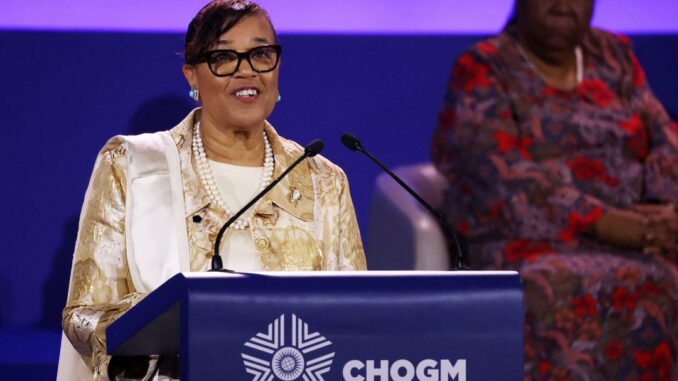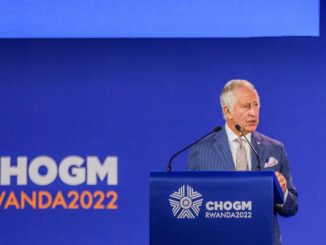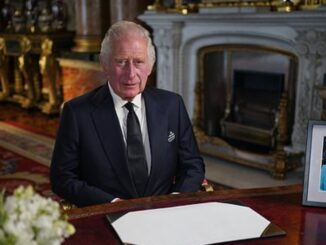
Commonwealth members voted to keep Patricia Scotland as Secretary-general of the 54-nation club after some members including Britain tried to oust her, two sources told Reuters after a behind-closed-doors vote.
Born in Dominica and raised in Britain, Scotland had a career as a lawyer and politician in Britain before taking up the post of secretary-general of the Commonwealth in 2016. She embraced supporters after the vote, the sources said.
Her time in office has been dogged by allegations of poor leadership, including over a lavish refurbishment of her official lodgings in London, the award of a lucrative contract to a friend and other scandals that have been widely reported in the British media. Scotland denies any wrongdoing.
ALSO READ: Prince Charles expresses sorrow over slavery as Commonwealth leaders gather for Kigali summit
Her term was supposed to finish in 2020, but was extended because the Commonwealth summit scheduled for that year could not take place due to the COVID pandemic. After a two-year delay, it is now taking place in the Rwandan capital.
Having served six years instead of four, she will now serve a second term of just two years.
In her speech to the opening ceremony of the summit, which she delivered ahead of the vote, she had sounded confident about continuing in the role, Reuters said.
“I am determined that, when the role of secretary-general rotates to Africa two years from now, I will hand on the baton with a stronger, more effective, more powerful Commonwealth than ever before,” she said.
She was facing a challenge from Kamina Johnson Smith, the foreign minister of Jamaica, who conceded defeat in a Tweet.
“If I didn’t pull through, God wasn’t ready for me to leave Jamaica yet!” she wrote. “I continue to serve, and of course, sincere congratulations to Baroness Scotland.”
Scotland is a member of Britain’s House of Lords, hence the title.
She will retain her seat as the Secretary-General of the Commonwealth Secretariat after winning the highly contested vote that has left the 54-member group sharply divided.
Ms Scotland, who belongs to the United Kingdom’s opposition Labour party, did not have the support of the current Conservative government led by Prime Minister Boris Johnson. The UK, the current chair of Commonwealth Heads of Government Meeting (CHOGM), was leading a campaign to oust her, insisting that a change of leadership is required at the Secretariat.
The UK, expected to remain neutral, had publicly endorsed Jamaica’s Foreign Affairs and Foreign Trade Minister Kamina Johnson for the post, creating a rift.
The move was criticised by the Labour shadow Foreign, Commonwealth and Development Affairs minister saying: “The chair of the Commonwealth is supposed to maintain neutrality and confidentiality. No chair has ever done this in Commonwealth history. It’s unseemly and divisive.”
REELECTION
In her opening remarks at the meeting in Kigali, Ms Scotland made clear her intentions that she wanted to serve a second term. “I’m determined that when the role of Secretary-General rotates to Africa, two years from now I will hand on the baton with a stronger and more effective powerful Commonwealth than ever before.”
Africa, whose turn it is to serve, did not field a candidate after Kenya’s Energy Cabinet Secretary Monica Juma pulled out of the race citing inadequate backing from the Commonwealth.
Ms Scotland was elected to the post at the Commonwealth Heads of Government Meeting (CHOGM) in Malta in 2015, and took office on April 1, 2016, becoming the second secretary-general from the Caribbean and the first woman to hold the post.
Her first term was supposed to end in 2020. However, the 54-member states agreed to retain her as the pandemic disrupted the CHOGM schedule and subsequent election of an SG.
The Commonwealth is a club of mainly former British colonies. Rwanda and Mozambique became members in 2009 and 1995 respectively but had not been colonised by Britain.
Ms Johnson’s candidature had left the Caribbean member countries under Caricom, which had previously endorsed Ms Scotland, sharply divided, leaving Africa to influence the outcome of the election.
Ms Scotland has been re-elected with 27 votes against Ms Johnson’s 24.




